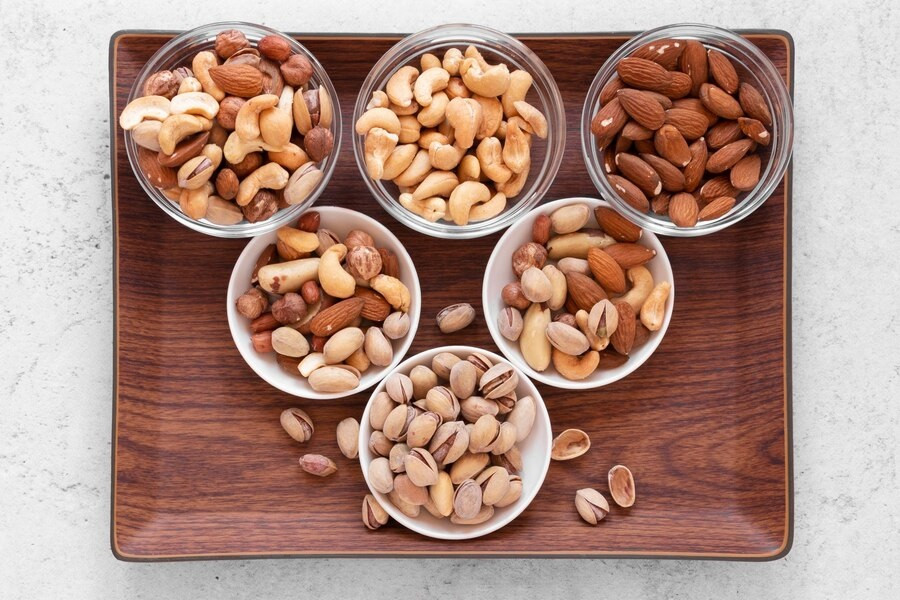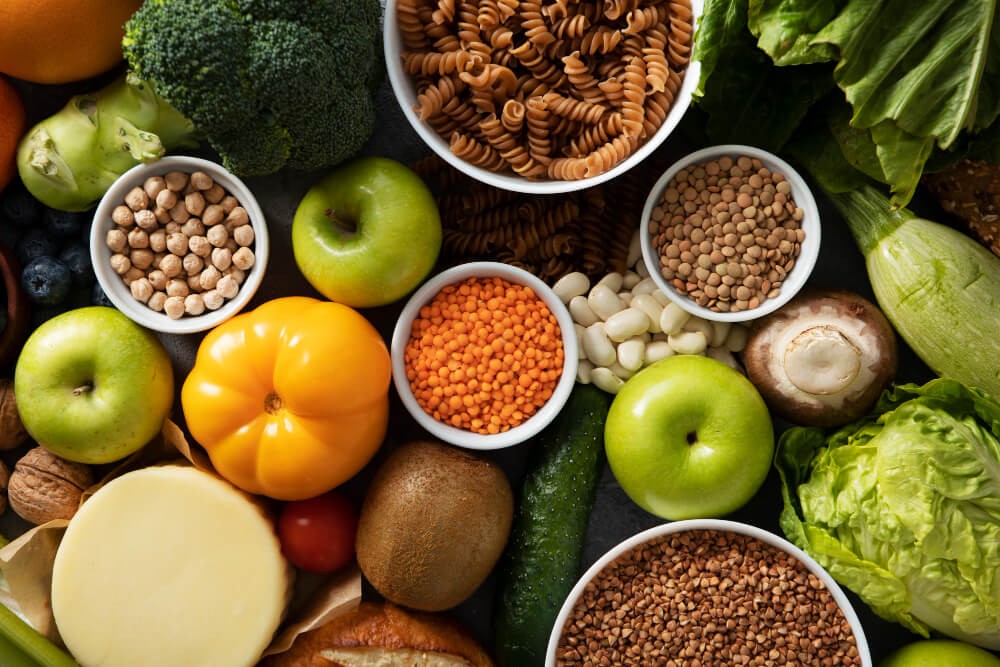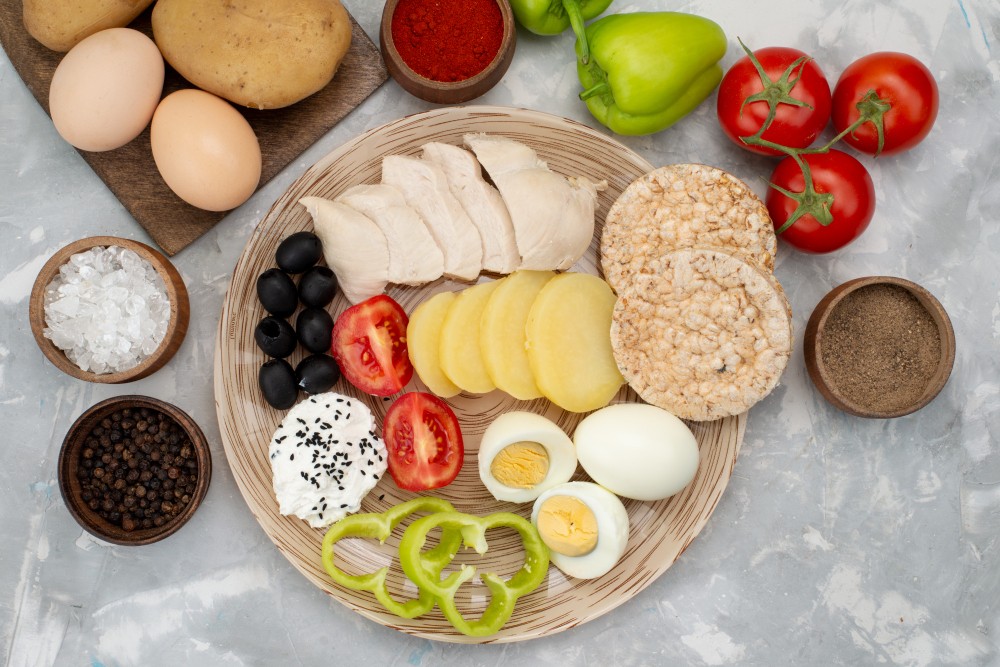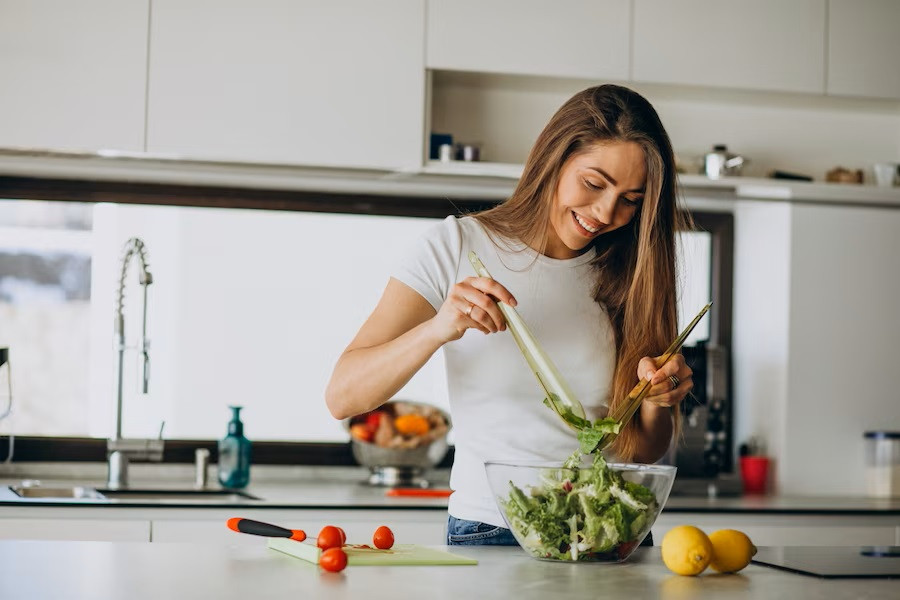Makanan tidak hanya memberikan nutrisi penting bagi tubuh, namun juga bisa memainkan peran penting dalam mengurangi kecemasan. Kecemasan berkaitan erat dengan respons stres, yang membantu kita bertahan dalam situasi menantang.
Beberapa makanan telah diketahui memiliki sifat yang dapat membantu meredakan gejala kecemasan dan meningkatkan kesejahteraan mental. Namun, penting digarisbawahi bahwa tidak ada makanan ajaib yang secara langsung dapat mengatasi masalah mental.
Simak daftar makanan yang dapat mengurangi kecemasan secara alami berikut ini, yuk!
Makanan yang Dapat Mengurangi Kecemasan Secara Alami
Alpukat
Buah alpukat adalah sumber nutrisi yang kaya akan berbagai vitamin B. Alpukat mengandung vitamin B9, B3, B5, B2 dan B6. Menurut penelitian, mengonsumsi makanan kaya vitamin B dapat membantu mengurangi gejala dan perasaan cemas.
Bluberi
Berbagai penelitian menunjukkan bahwa bluberi memiliki banyak manfaat bagi kesehatan tubuh, seperti meningkatkan kesehatan jantung, meningkatkan kekuatan tulang, menurunkan tekanan darah, memberikan perlindungan terhadap penyakit kanker, meningkatkan kesehatan pencernaan serta meningkatkan kesehatan mental dan kognitif.
Bluberi dapat dinikmati dalam berbagai cara, baik segar, beku, ataupun dalam bentuk jus, smoothie, atau tambahan dalam berbagai resep makanan dan minuman.
Baca Juga: Benarkah Gangguan Kecemasan dapat Memicu Hipertensi?
Makanan yang kaya kalsium
Penelitian menunjukkan bahwa mengonsumsi makanan dan minuman kaya kalsium seperti susu, keju, dan produk susu lainnya dapat mengurangi kecemasan dan meningkatkan suasana hati yang lebih positif. Kalsium berperan penting dalam fungsi saraf dan neurotransmitter di dalam otak. Neurotransmitter seperti serotonin berkaitan dengan suasana hati yang baik dan kebahagiaan.
Kalsium juga berperan dalam sistem saraf otonom yang mengatur respons tubuh terhadap stres. Sehingga mengonsumsi kalsium dengan cukup dapat menjaga keseimbangan saraf otonom dan mengurangi respons stres berlebihan.
Telur
Penelitian menunjukkan bahwa ada hubungan antara tingkat rendahnya asupan vitamin D dengan peningkatan risiko gejala kecemasan dan depresi. Salah satu makanan yang mengandung vitamin D dan mudah ditemukan sehari-hari adalah telur. Anda bisa memasukkan telur dalam menu makan sehari-hari untuk meningkatkan asupan vitamin D secara alami.
Baca Juga: Pilihan Jenis Teh untuk Meredakan Stres dan Kecemasan
Sayuran hijau
Sayuran hijau disarankan dikonsumsi setiap hari sebagai sumber serat yang juga kaya kandungan magnesium. Magnesium adalah mineral penting yang membantu regulasi neurotransmitter dan fungsi otot. Kekurangan magnesium dikaitkan dengan berbagai masalah kesehatan termasuk kecemasan dan gangguan suasana hati.
Kacang-kacangan dan biji-bijian
Selain sayuran hijau, kacang-kacangan dan biji-bijian juga menjadi alternatif lain sumber magnesium. Mengonsumsi kacang-kacangan seperti almon, kacang mete, biji labu, biji bunga matahari, dan kacang-kacangan lainnya secara teratur dapat membantu menjaga tingkat magnesium dalam tubuh, yang dapat mendukung kesehatan mental dan fisik.
Buah jeruk
Jeruk kaya kandungan vitamin C, antioksidan yang berperan penting dalam meningkatkan suasana hati dan mengurangi respons stres negatif. Sebuah studi menunjukkan mereka yang memiliki suasana hati buruk dan sering mengalami kecemasan memiliki pola makan rendah vitamin C.
Meskipun demikian, masih dibutuhkan penelitian lebih lanjut mengenai kaitan antara asupan makanan kaya vitamin C dengan perbaikan suasana hati dan kecemasan.
Jika Anda merasa cemas terus-menerus, takut atau khawatir, atau memiliki kecemasan yang memengaruhi aktivitas sehari-hari, sangat disarankan untuk berkonsultasi dengan dokter, psikolog atau psikiater. Gangguan kecemasan bisa menjadi kondisi serius yang memengaruhi kondisi fisik, mental dan emosional.
Anda juga bisa memanfaatkan layanan konsultasi bersama dokter kami dengan mengunduh aplikasi Ai Care melalui App Store atau Play Store.
Mau tahu informasi seputar nutrisi, makanan dan tips diet lainnya? Cek di sini, ya!
- dr Nadia Opmalina
Lindsay Funston (2024). Which Foods Help Reduce Anxiety?. Available from: https://www.health.com/food/stress-relieving-foods
Medline Plus (2023). Anxiety. Available from: https://medlineplus.gov/anxiety.html
Annette McDermott and Karen Lamoreux (2024). 10 Natural Ways to Reduce Anxiety. Available from: https://www.healthline.com/health/natural-ways-to-reduce-anxiety
Erika Watts (2022). Vitamin B6 may reduce anxiety symptoms, study shows. Available from: https://www.medicalnewstoday.com/articles/vitamin-b6-may-reduce-anxiety-symptoms-study-shows
Megan Ware, RD, LD (2023). Everything you need to know about blueberries. Available from: https://www.medicalnewstoday.com/articles/287710
Chen Du, et al. (2022). Relationships between Dairy and Calcium Intake and Mental Health Measures of Higher Education Students in the United States: Outcomes from Moderation Analyses. Available from: https://www.ncbi.nlm.nih.gov/pmc/articles/PMC8877188/
Serife Akpinar and Makbule Gezmen Karadag (2022). Is Vitamin D Important in Anxiety or Depression? What Is the Truth?. Available from: https://www.ncbi.nlm.nih.gov/pmc/articles/PMC9468237
Uma Naidoo, MD (2019). Nutritional strategies to ease anxiety. Available from: https://www.health.harvard.edu/blog/nutritional-strategies-to-ease-anxiety-201604139441
Brent A. Bauer, M.D. (2022). Can vitamin C improve your mood?. Available from: https://www.mayoclinic.org/healthy-lifestyle/nutrition-and-healthy-eating/expert-answers/benefits-vitamin-c/faq-20058271












